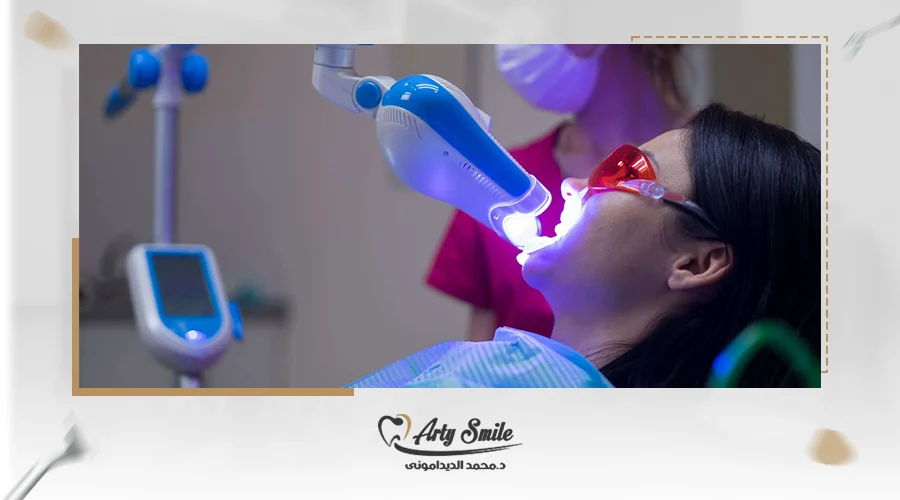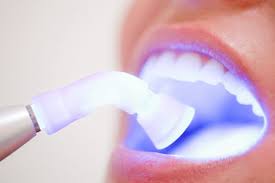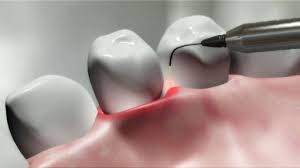What is Dental Laser?
Laser dentistry can be a precise and effective way to perform many dental procedures.
The potential for laser dentistry to improve dental procedures rests in the dentist’s ability to control power output and the duration of exposure on the tissue (whether gum or tooth structure), allowing for treatment of a highly specific area of focus without damaging surrounding tissues.
The laser is painless
so, there is no need to numb the tooth, therefore no needles, and for anyone who associates the screechy whiny sound of a drill with a dentist visit, you will be pleasantly surprised by the soft click of a laser.
In addition, when treating a cavity, we can save more of your tooth because a laser will remove only the decay, without damaging the healthy part of the tooth.
As the applications for dental lasers expand, greater numbers of dentists will use the technology to provide patients with precision treatment that may minimize pain and recovery time.
Benefits of using laser dentistry over other methods:
There is potentially a decreased need for sutures with soft tissue lasers.
Bleeding is minimized in treated soft tissues, as the laser promotes blood clotting.
With some procedures, anesthesia is unnecessary.
The chance for bacterial infections is lower because the laser sterilizes the area.
Wounds can heal faster, and it’s possible for tissue to regenerate.
The procedures may involve less damage to the surrounding tissues.



